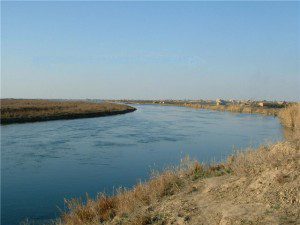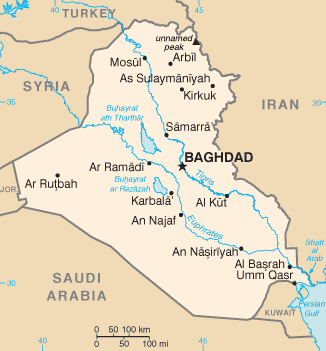
(Wikimedia CC; click to enlarge)
I actually discussed an important aspect of today’s reading (2 Nephi 18 = Isaiah 8) yesterday, so I won’t revisit that topic in this post. But the focus today is related to yesterday’s, and it concerns the international political situation of Isaiah’s time — probably in the period 735-731 BC.

(Wikimedia Commons public domain)
The great empire of Assyrians was expanding, led by imperialist kings, and the rulers of Syria, Israel, and Judah were in a state of deep unease because they understood that they were directly in the path that Assyria would be taking in order to confront the rival great power of the day, Egypt.
Thus, there was talk of alliances — in the King James translation, of a “confederacy,” of taking counsel together, of mutual “association” — and of military preparations (girding themselves). Moreover, the two kings of Syria and Israel had been seeking (as I mentioned yesterday) to put a pliable king, a reliable ally, on the throne of Judah
But the Lord is warning his people, through Isaiah, that no such human preparations will be of any use to them. It is he who is bringing Assyria upon them. (The “river” referred to in verse 7 is the Euphrates, in the land of Assyria, famous for its power and notorious for its floods.) The only hope for Judah, says Isaiah, is humble reliance upon God (verse 13).
Unfortunately, even many of those who recognize the need for supernatural aid have been seeking it in inappropriate places. Again, they’re told, they should turn to God. (See verses 19-20.)










